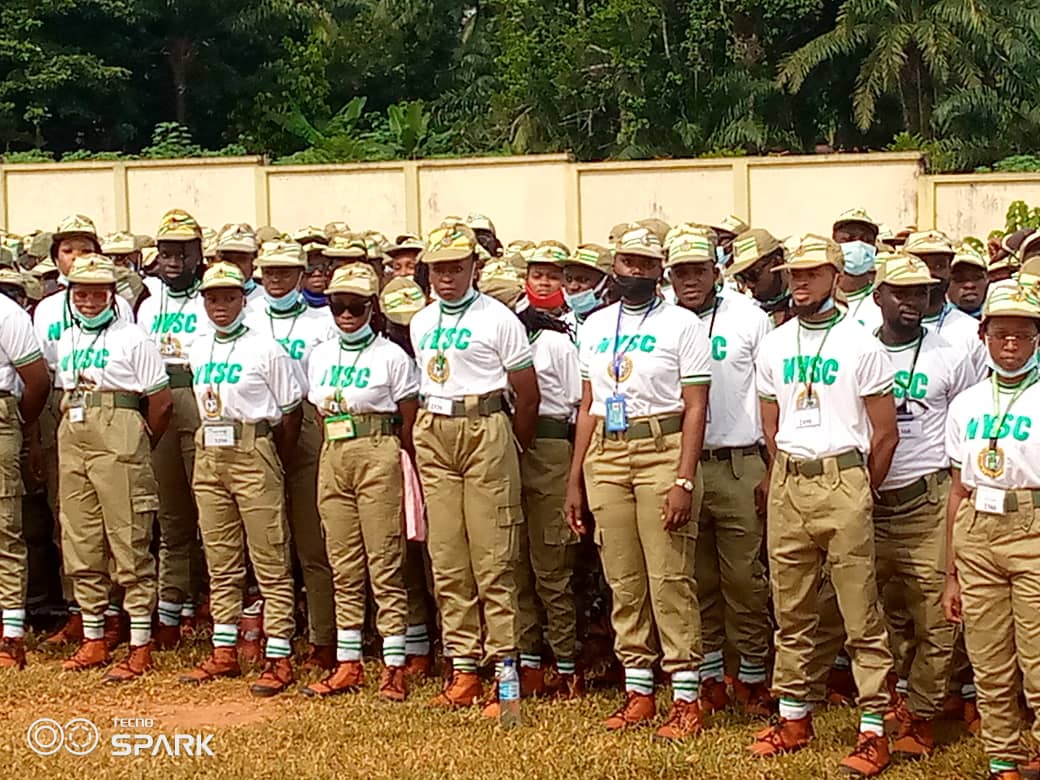A Nigerian, Okomayin Dennis Ude, has dragged the director-general of the National Youth Service Corps (NYSC), Brigadier-General Mohammed Kaku Fadah, before a Federal High Court sitting in Abuja, over the continued existence of the NYSC scheme.
The plaintiff, in suit number FHC/ABJ/CS/1185/2022 joined the attorney general of the federation, Abubakar Malami; the President of the Federal Republic Of Nigeria, Muhammadu Buhari; the National Assembly and the minister of the Federal Ministry of Finance, Zainab Ahmed, as defendants in the suit.
- Group writes Buhari over demolition of multi-billion naira shops, threatens to sue FCT Minister
- Naija Star Search: Talent hunt for afrobeats singers begins
The plaintiff, in the suit filed through his lawyer, Chief Ademuyiwa Adeniyi, SAN, prayed the court for an order, that the continued sustenance of the National Youth Service Corps Act, 1993 and the mandatory posting of innocent Nigerian Youths to insurgency and banditry ravaged or prone states or areas of the federation pursuant to Sections 9 and 13 of the National Youths Service Corps Act, 1993 is a breach of the right of every Nigerian Youth to the security of life and dignity as guaranteed by Sections 33 and 34 of the Constitution of the Federal Republic of Nigeria, 1999 as amended.
He also prayed for an order of injunction restraining the 3rd Defendant (the President) from assenting or giving his assent to the National Youth Service Corps Trust Fund Act, Bill, 2022 as passed by the 4th Defendant and presented to the 3rdDefendant for assent.
“An order of this Court striking down Sections 9 and 13 of the National Youth Service Corps Act, 1993 or the entire National Youth Service – Corps Act for being inconsistent with the Constitution of the Federal Republic of Nigeria, 1999 as amended.”
In the affidavit in support of the originating summons, deposed to, by the plaintiff, he said: “That I know that the taxes paid by Nigerians form part of the revenue that the government of Nigeria is using to run and fund the National Youth Service Corps Scheme, therefore the way and manner the Nigerian Government utilizes the revenue affects me personally.
“That additional burden on the revenue of the Nigerian Government is additional burden on me as a tax paying Nigerian citizen.
“That I know that the National Youth Service Corps Scheme, already is an expensive Scheme for Nigerian government, stretching the revenue of Nigerian beyond limit.
“That I am aware that the National Assembly has proposed a Bill for the enactment of a Law to create National Youth Service Corps Trust Fund and is about to present the said Bill to the 3rd Defendant for assent.
“That the proposed National Youth Service Trust Fund Bill if assented by the 3rd Defendant will impose additional taxes as proposed by the Bill on me and other tax paying Nigerians.
“That assenting to the Bill for the creation of National Youth Service Corps Trust Fund and spending more or additional public funds on the scheme will not only be additional burden on Nigerian tax payers of which I am, but a waste of public fund on a scheme that has lost meaning and relevance.
“That the National Youth Service Corps Scheme contemplates that every Nigerian Youth that the scheme applies to shall be able to be posted to anywhere in Nigeria and in service of the Federation.
“That today, the present security situation and reality of the present time is that the scheme cannot post a Nigerian Youth that the scheme applies to, to Borno, Imo, Kastina, the home state of the 3rd Defendant, Yobe, Zamfara, Sokoto and part of Kaduna State.
“That instead of assenting to the Bill to create National Youth Service Corps Trust Fund, the National Youth Service Corps Scheme in its entirety should be scrapped and abolished since the 3rd Defendant who is to assent to the Bill cannot guarantee the security of lives of Nigerian Youths that are posted across the Federation pursuant to the scheme.”
The NYSC scheme was introduced in 1973 by the administration of General Yakubu Gowon, who was the then Head of State.
The scheme mandates every Nigerian graduate to serve the country for a period of one year before seeking paid employment after graduation.
No date has been fixed for the hearing of the case.

 Join Daily Trust WhatsApp Community For Quick Access To News and Happenings Around You.
Join Daily Trust WhatsApp Community For Quick Access To News and Happenings Around You.